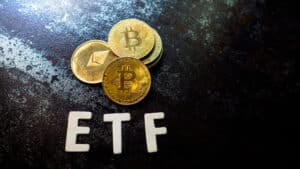
SEC ETH ETFs Approval Decision Relieves Ether and Many Altcoins from Securities Status
The sudden turnaround by the US Securities and Exchange Commission (SEC) to approve spot Ethereum ETFs changes the security status of ETH alongside other altcoins.
Industry analysts and crypto lawyers indicate that while ETH status shifts to commodities, it does not hinder the SEC from pursuing action against altcoins and actors within the ETH domain.
ETH ETF Approval Implies Ether not Security
Crypto industry pundits consider the decision to approve the spot Ether exchange-traded funds (ETFs) constitute an implicit recognition from the SEC is no longer a security.
The industry pundits suggest that the implicit recognition that ETH is not a security extends to other altcoins.
During the Bankless podcast with Ryan Adams, Bloomberg ETF analyst James Seyffart clarified that the spot ERH ETFs are commodities-based trust shares. Their approval implies that the Gary Gensler-led Commission will not pursue Ether as a security.
Digital asset attorney Justin Browder echoed Seyffart’s view, adding that the likely approval of S-1s of the eight applicants to start trading will end the protected debate over ETH status as either security or commodity.
Bain Capital Crypto’s head of authority, TuongVy Le, termed the debate dead since the approval of spot ETH ETFs indicates that the Gensler-led Commission no longer considers Ether security. Besides, she revealed via a post on X (formerly Twitter) that funds with assets comprising 40% of securities cannot register via form S-1.
TuongVy Le added that funds with over 40% securities in their assets can only be registered via forms N-1 or N2. She added that allowing the registration of funds whose assets carry an ETH composition surpassing 40% via the S-1 ends the contest that Ether is not secure.
SEC’s ETH ETF Approval Extends Commodity Status to Other Tokens
Adam Cochran, a partner at Cinneamhain Ventures, offered an extrapolated explanation for the Ether status as not a security. The venture capitalist indicated that the commodities status could extend to multiple project tokens.
Cochran termed Ether a commodity even when assessed from the present attributes. He indicated that one can extend a classification similar to other project tokens.
Cochran declares that multiple project tokens became commodities unawares.
The conclusion by the venture capitalist aligns with the crypto community as they anticipate the ETF rollout to extend to Solana (SOL), Cardano (ADA), and Ripple XRP. Beyond ETFs bid, several other projects could see their native tokens assume commodity status.
Seyffart warns against the viral belief that the implicit recognition of Ether will bar the SEC from pursuing actors undertaking staking. The ETF analyst predicts that SEC could attempt to thread the needle by excluding Ether.
Balchunas considers it likely that the SEC will classify staked ETH as security, a course they will not give up soon.
Crypto lawyer Joe Carlasare backs Seyffart’s view, indicating that SEC will likely pursue individual actors, particularly staking them as a service even with the Ether ETF unveiled. Nonetheless, he downplays the likelihood of the SEC undertaking other actions.
Carlasare likely refers to the Wells Notice served by the Commission to the Ethereum infrastructure firm Consensys in April. The notice involved MetaMask’s involvement in trading and staking services.
SEC’s ETH ETF Approval has Widespread Implication on Altcoins
James Murphy from Ludlow Street Advisors, LLC, identified as MetaLawMan on X profile, considers the approval of 19b-4 applications declaring Ether a commodity, with the resulting ETFs becoming commodity-based trusts.
The decision yields second-order effects that could ultimately affect the ongoing suits against the Commission, such as the offensive lawsuit by Consensys. Also, it could affect the suits that SEC leveled against various crypto projects.
Finance attorney Scott Johnsson observes that the SEC was noncommittal on Ether’s non-security status when approving the order. The regulator sidestepped the issue.
Johnsson affirms that the SEC would likely address the issue officially.
The SEC approved 19b-4 applications by VanEck, BlackRock, Invesco Galaxy, ARK21Share, Bitwissle, and BlackRock. The list also features Fidelity, Franklin Templeton, and Grayscale, which seeks to convert its Ethereum trust to an ETF as it did in Bitcoin Trust to GBTC. Notably, many hopefuls for the ETH ETFs struck off staking when submitting their amended bids.
Hashdex missed out on the eight approved ETH ETFs that await S-1 registration statements before their unveiling.




